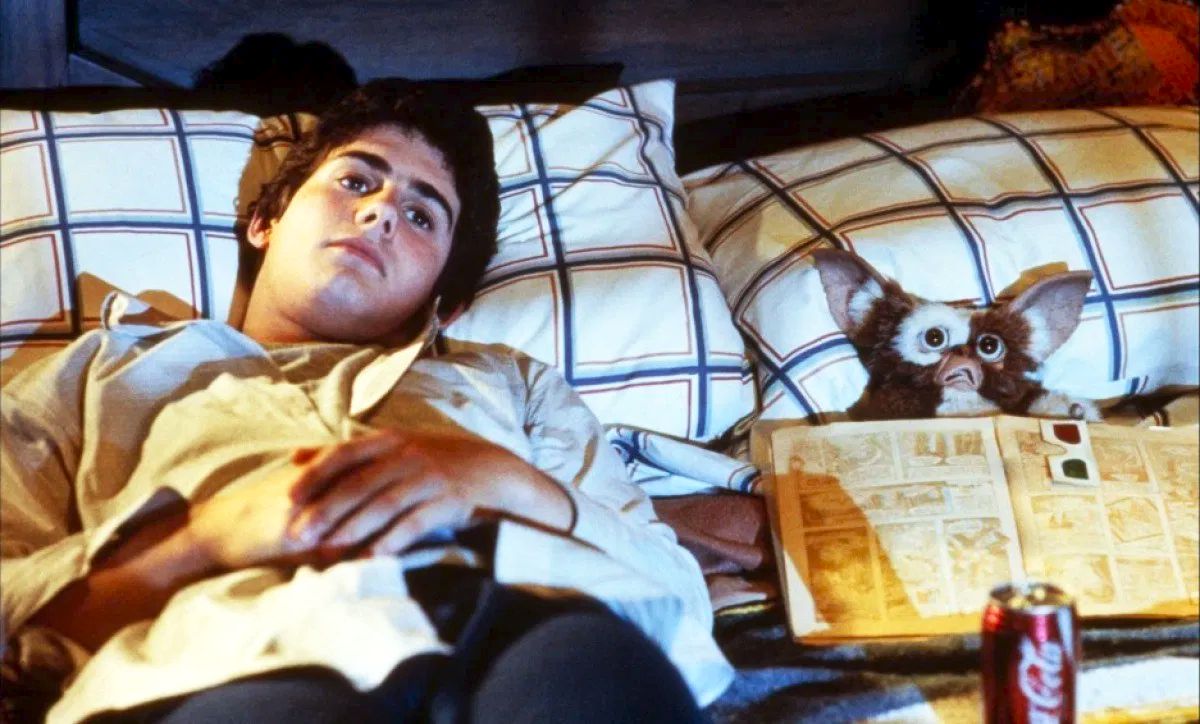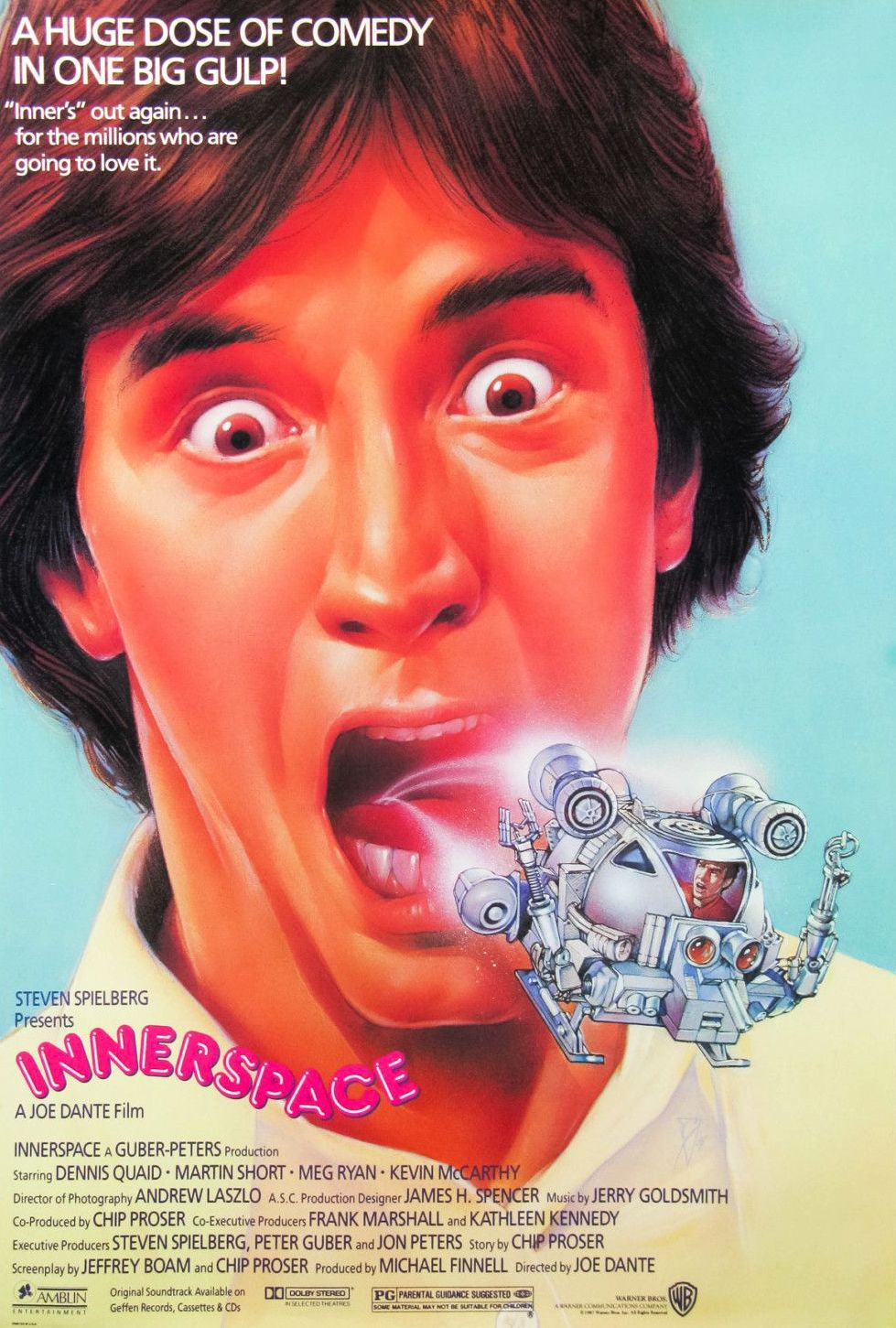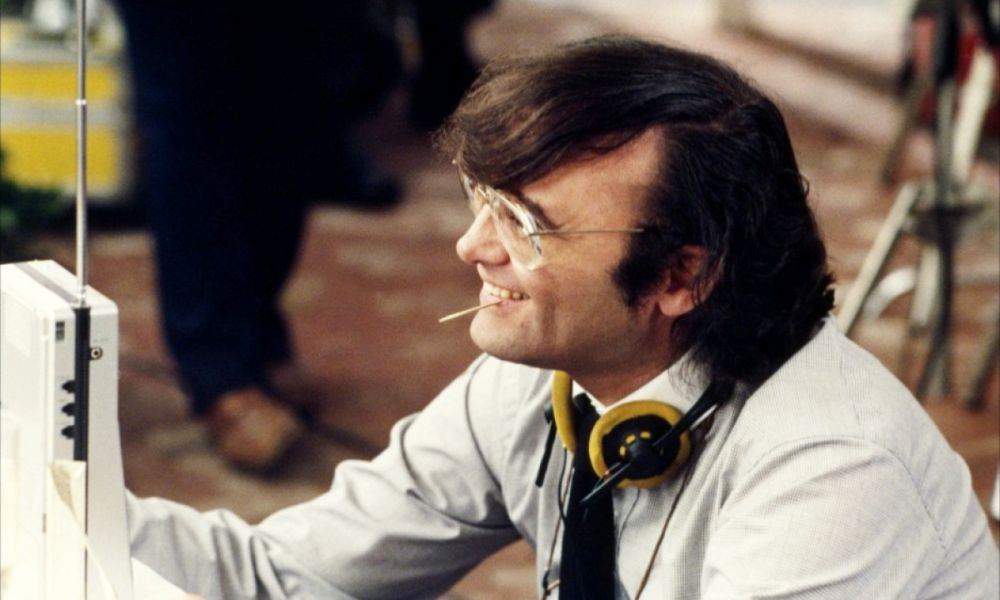"At his best, Dante manages to capture in his work the wonder - and humor - of 1950s and 1960s movies that first turned him on: his films are overflowing with in-jokes for like-minded movie buffs." - Leonard Maltin's Movie Encyclopedia, 1995
Joe Dante
Director / Editor
(1946- ) Born November 28, Morristown, New Jersey, USA
(1946- ) Born November 28, Morristown, New Jersey, USA
Key Production Country: USA
Key Genres: Comedy, Horror, Sci-Fi Comedy, Parody/Spoof, Creature Film, Horror Comedy, Science Fiction, Family-Oriented Comedy
Key Collaborators: Dick Miller (Character Actor), Robert Picardo (Character Actor), Jerry Goldsmith (Composer), Michael Finnell (Producer), John Hora (Cinematographer), Marshall Harvey (Editor), James Spencer (Production Designer), Zach Galligan (Leading Actor), Phoebe Cates (Leading Actress), John Sayles (Screenwriter), Charlie Haas (Screenwriter), Jamie Anderson (Cinematographer)
Key Genres: Comedy, Horror, Sci-Fi Comedy, Parody/Spoof, Creature Film, Horror Comedy, Science Fiction, Family-Oriented Comedy
Key Collaborators: Dick Miller (Character Actor), Robert Picardo (Character Actor), Jerry Goldsmith (Composer), Michael Finnell (Producer), John Hora (Cinematographer), Marshall Harvey (Editor), James Spencer (Production Designer), Zach Galligan (Leading Actor), Phoebe Cates (Leading Actress), John Sayles (Screenwriter), Charlie Haas (Screenwriter), Jamie Anderson (Cinematographer)
"Joe Dante is a U.S. director best known for his darkly comic horror and science-fiction films, including Piranha (1978), The Howling (1981), and the monster hit Gremlins (1984). Dante started out as a cartoonist on magazines, before focusing on filmmaking. An avid movie fan, Dante wrote film reviews for several publications prior to his first job in the film industry as an editor at New World Pictures." - William Sean Wilson (501 Movie Directors, 2007)
"Tied to a strong script, Dante's anarchic black humour and subversive send-ups of movie stereotypes provide a delightfully imaginative alternative to Spielberg's manipulative mawkishness; Inner Space, however, exhibits the way his weak plot-sense can occasionally result in indulgent mayhem and irritating in-jokes." - Geoff Andrew (The Film Handbook, 1989)

Gremlins (1984)
"Multi-talented director Joe Dante is a bit like one of the juvenile heroes of one of his best films, Explorers, tinkering about with various cinematic bits and pieces and the found parts of miscellaneous cultural artifacts to assemble unique vehicles which sometimes take flight to new and astounding fantasy worlds. It’s no wonder personalities similarly steeped in America’s cinematic and pop cultural past (such as Roger Corman and Steven Spielberg) were among the first to recognize Dante’s unique attributes… At his best there’s no one like him, and even misfired Dante is more interesting than most other genre work done in the Hollywood mainstream in the last decades of history’s most complex, commercial, and culturally bewildering century." - Ross Care (International Dictionary of Films and Filmmakers, 2000)
"Although known chiefly for Gremlins (1984) and Innerspace (1987), the two films he directed for Steven Spielberg’s Amblin Entertainment in the 1980s, Joe Dante is far from being simply a ‘director for hire’ or a carbon copy of Spielberg. Despite his films sharing superficial similarities with Spielberg’s work (the suburban settings disrupted by fantastic events, the childlike protagonists at the centre of the story), Dante is one of the most distinctive mainstream filmmakers of the 1980s. With his jack in the box visual style, in-joke movie references and satirical swipes at American institutions (principally suburban Middle America and the US military), Dante’s films are great fun. Like Quentin Tarantino, Dante’s love of movies—particularly B-movies—oozes off the screen and you get the sense that he wants to share that love with his audience as well." - Marytn Bamber (Senses of Cinema, 2003)
"American director of effects-driven fantasies, comedies and horror films… Dante's boyish enthusiasm for the cinema of his childhood is still evident." - David Quinlan (Quinlan's Illustrated Guide to Film Directors, 1999)
"Joe Dante is the most casual and colloquial of American genre-movie masters. Whether in a werewolf movie like The Howling (81) or a one-of-a-kind coming-of-age film like Matinee (93), set in Key West during the Cuban Missile Crisis, he keeps the images fresh and unpredictable, the dialogue snappy, and the characters humorous, individual, and accessible." - Michael Sragow (Film Comment, 2015)
"Dante's achievement is considerable. His films constitute a canon of work which has continually undermined and subverted American mythologies, pointing up the particular complicity of the arts and media in the United States in perpetuating unsustainable ideological and socio-cultural agendas. His playful yet black comic sensibility, allied to his encyclopaedic knowledge of popular culture, has enabled him to critique the conservatism of American political and social experience, and lament the triumph of late capitalism over distinctive and imaginative cultural identities… Acclaim for the consistency and creativity in Dante's oeuvre is long overdue." - Paul Bamford (Contemporary North American Film Directors, 2002)
"I wouldn’t make a movie that I wouldn’t go and see. I’ve been offered movies that were perfectly good projects, but I said, “I wouldn’t even go and see this movie… I’m certainly the wrong guy to make it.” So I think you really have to have a connection or else you’re just spinning your wheel." - Joe Dante (Arrow Video)
Selected Filmography
{{row.titlelong}}
GF Greatest Films ranking (★ Top 1000 ● Top 2500)
21C 21st Century ranking (☆ Top 1000)
T TSPDT R Jonathan Rosenbaum
21C 21st Century ranking (☆ Top 1000)
T TSPDT R Jonathan Rosenbaum
Joe Dante / Favourite Films
8½ (1963) Federico Fellini, Chinatown (1974) Roman Polanski, Citizen Kane (1941) Orson Welles, City Lights (1931) Charles Chaplin, Dr. Strangelove or: How I Learned to Stop Worrying and Love the Bomb (1964) Stanley Kubrick, The Godfather Part II (1974) Francis Ford Coppola, The Grapes of Wrath (1940) John Ford, A Matter of Life and Death (1946) Michael Powell & Emeric Pressburger, Pinocchio (1940) Ben Sharpsteen & Hamilton Luske, Umberto D. (1952) Vittorio De Sica.
Source: Sight & Sound (2022)
8½ (1963) Federico Fellini, Chinatown (1974) Roman Polanski, Citizen Kane (1941) Orson Welles, City Lights (1931) Charles Chaplin, Dr. Strangelove or: How I Learned to Stop Worrying and Love the Bomb (1964) Stanley Kubrick, The Godfather Part II (1974) Francis Ford Coppola, The Grapes of Wrath (1940) John Ford, A Matter of Life and Death (1946) Michael Powell & Emeric Pressburger, Pinocchio (1940) Ben Sharpsteen & Hamilton Luske, Umberto D. (1952) Vittorio De Sica.
Source: Sight & Sound (2022)
Joe Dante / Fan Club
Filipe Furtado, Kleber Mendonça Filho, Edgar Wright, Tim Robey, Joe Kane, Dave Kehr, Keith Uhlich.
Filipe Furtado, Kleber Mendonça Filho, Edgar Wright, Tim Robey, Joe Kane, Dave Kehr, Keith Uhlich.
"Fan Club"
These film critics/filmmakers have, on multiple occasions, selected this director’s work within film ballots/lists that they have submitted.
These film critics/filmmakers have, on multiple occasions, selected this director’s work within film ballots/lists that they have submitted.


